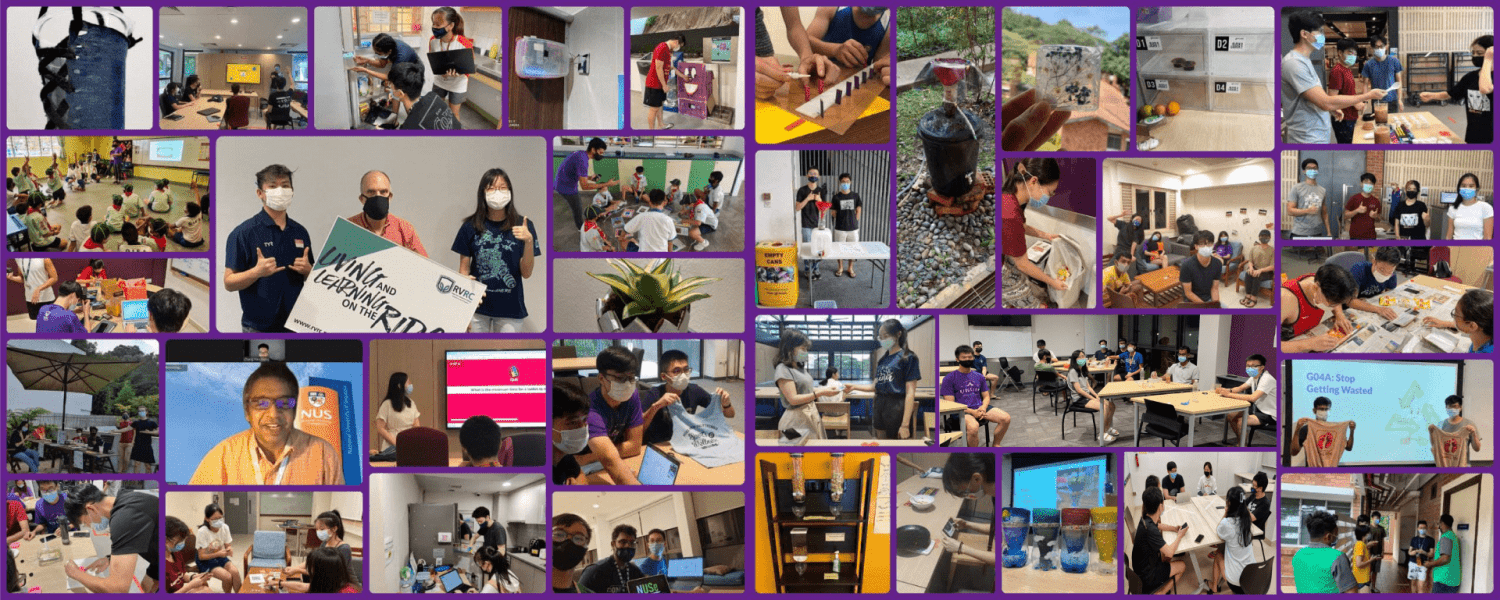Built Environment & Green Infrastructure
During the next decade, more than half of the world’s population will live in cities. The modern city is a prominent example of the built environment, the human-made surroundings that provide the physical setting for human activities. The complex relation between the human-made and the natural environment and its resources is increasingly seen as a key focus on sustainability studies. Increasing the harmonization of human and natural environments is a global quest with relevance at the local scale: can the city-state of Singapore become a sustainable built environment? This category include projects associated with the need for a sustainable built environment from the perspective of the city, the NUS Campus, individual buildings, landscapes, the construction process, materials, and resources.
The increasing expansion, diversification, and complexity of modern life, highly influenced by technology development and globalization, is creating a major impact on our lifestyle and consequently, on our environmental footprint. Singapore, a small island nation state, is not immune to the effects of global trends and susceptible to both positive and negative life style trends. This category include projects associated with across a variety of issues such as demographics, social care, human-environment relation, and social behaviour.
Topics “Waste management” and “Culture & Life Style Trends” are now under “Responsible Consumption”
Energy plays an important role in many aspects of our lives. For example, we use electricity for lighting and cooling. We use fuel for transportation, heating, and cooking. Our energy production and use is interconnected with many other aspects of modern life, such as water consumption, use of goods and services, transportation, economic growth, land use, and population growth. Our production and use of energy (most of which comes from fossil fuels) also contributes to climate change. This category include projects that assess energy consumption patterns on NUS campus, with the intention of identifying and testing some potential solutions that reduce energy consumption.
Topic “Transport” is now under “Energy & Climate”
Increasing food production to feed the growing world population is a core sustainability issue. With the advance of technology and science, we are finally able to produce more food than we need. However, more than one third of all the food produced globally is lost or wasted, creating a substantial effect on the consumption and degradation of resources including water, land, and energy. Wasted food also contributes to global warming and climate change. Singapore wastes over 60 kg of food per capita every year. This category covers projects on the issues of food production, consumption, and wastage aiming at mitigating the environmental impact
Natural Environment & Ecosystems
From the principle of inter generational equity, the present generation needs to ensure that the health, diversity and productivity of the environment is maintained or enhanced for the benefit of future generations. In order for this to happen, environmental factors should be carefully weighed in the valuation of assets and services, to provide more incentive for the conservation of biological diversity and ecological integrity. Urban development in Singapore has been rapid in the past few decades, placing ever increasing pressure on its natural ecosystems. This has lead to the creation of serious threats or irreversible environmental damage in several key species of flora and fauna. This category include projects that focus on some of these issues in greater detail.
Water is a finite and irreplaceable resource that is fundamental to human well-being. It is only renewable if well managed. More than 1.7 billion people live in river basins where depletion through use exceeds natural recharge, a trend that will see two-thirds of the world’s population living in water-stressed countries by 2025. Managed efficiently and equitably, water can play a key role in strengthening the resilience of social, economic and environmental systems in the light of rapid and unpredictable changes. This category contains project proposals that evaluate potential solutions to reducing water consumption at an individual level.






